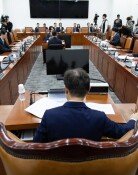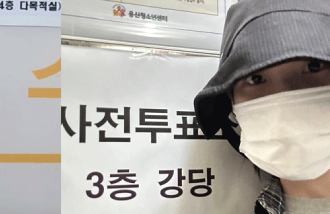Support in Iraq, in Exchange for Obstructing High Yen?
Support in Iraq, in Exchange for Obstructing High Yen?
Posted October. 13, 2003 22:41,
Ahead of the U.S. President George W. Bush`s visit to Japan on October 17, the exchange rate of the Japanese yen to the dollar came up as the core issue of the U.S.-Japan summit, nullifying the issue of sending troops to Iraq.
The original reason of Mr. Bush`s visit was to ask for funds for Iraq and to send troops there to assist in maintenance of the country, however, as the Japanese government has already accepted these requests as the U.S. had asked, obstructing the high yen value has become the main issue of the summit.
The U.S. government is holding fast to the principle that the exchange rate must be coordinated by the market, being conscious of the U.S. companies which wants to weaken the U.S. dollar to maintain trade balance. However, the U.S. government cannot simply ignore Japan`s demand because of Japans active help to the U.S. in the international community.
The international financial world considers the U.S-Japan summit as a diverging point which will decide the currency values of other major countries, continuing from the G7 conference of the Ministers of Finance which was held on September 22.
Mr.Koizumi is Mr. Bush`s only friend...
Pressure from Japan: Unlike most countries debating over the issue of sending troops to Iraq, Japan decided very early on to send the Self-Defense Forces within this year. Also, Japan agreed to provide $5 billion total over four years until 2007, beginning by providing $1.5 billion next year.
Five billion dollars is a large amount for Japan, considering Japan`s current financial situation of a long time recession. The Japanese media interpreted it as a big present from the Japanese Prime Minister Junichiro Koizumi, at the risk of the Opposition Party`s objection, for his "friend" Mr. Bush, in return for being invited to his ranch in Texas.
The Japanese newspaper Nikkei reported that the Japanese government is intending to get concessions in the exchange rate issue from the U.S. as a benefit in return for helping the U.S. in the Iraqi issue.
Supporting the U.S. in Iraq in exchange for obstructing the high yen" possible?: Currently, the exchange ration of yen to dollar is 110-1, which was up from a value of 108-1 on October 8.
Finance experts predict that the yen could reach to a value of 100-105 yen per dollar by the end of this year, without any help from the U.S. and Europe. As the ability to pay for major export industries including automobiles and electronic business turned out to be in a deficit, the worries are increasing that if the yen reaches a rate of 100 to a dollar, it could put the Japanese economy into a serious crisis.
The Japanese government expects that at the summit the President Bush will say, "There is no change in strong dollar policy." Realistically, if both countries can not intervene in preventing a high yen value, by simply announcing the principle, they will have an effect on suppressing the speculative currency.
The yen decreased slightly after Mr. Bush`s speech concerning the strong dollar at the U.S.-Japan summit in May.
However, the Bush Administration does not have many options considering the upcoming presidential election next year. Some think that Mr. Bush may not mention about the Japanese government market intervention concerning Mr. Koizumi.
parkwj@donga.com



![“국힘 41% 득표가 졌잘싸? 되레 독 될수도”[정치를 부탁해]](https://dimg.donga.com/c/138/175/90/1/wps/NEWS/IMAGE/2025/06/04/131745994.1.jpg)



